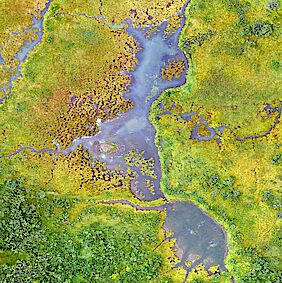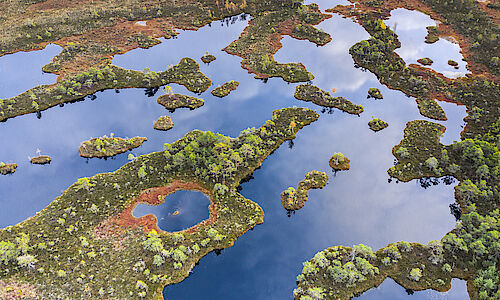News & Academies' activities
"Environmental Degradation Poses a Direct Threat to Europe’s Competitiveness"
EASAC is currently working on finalising a new EASAC Commentary on the Nature Restoration Regulation, adopted by the EU in 2024. Why now?
Elmqvist: As Europe is facing geopolitical uncertainty and mounting competitive pressure, environment protection is currently having a difficult stand. It is often considered as additional burden or cost, and thus increasingly seem to take a back seat on the political agenda.
Yet, environmental degradation poses a direct threat Europe’s competitiveness, as the European Environment Agency recently pointed out. The outlook is really concerning, which makes the Nature Restoration Regulation a very important piece of legislation to ensure the vital restoration of ecosystems in the EU's land and sea areas.
EU member states are now in the process of developing their national implementation plans to be presented next fall (2026) to the Commission. It is a good timing to communicate to member states of the importance of implementing this law
About which natural habitat in Europe are you most worried?
Elmqvist: Wetlands and aquatic systems are habitats under severe pressure due to human interventions such as agricultural expansion, urban development, pollution and climate change. The consequences are severe – from the loss of biodiversity and carbon storage capacity to water quality issues and reduced ecosystem services, to name just a few.
What does EASAC want to achieve with this Commentary?
Elmqvist: Above all, we want to highlight the many benefits to society restoration will generate, starting with long-term financial and security gains in agriculture and forestry, especially when it comes to climate change mitigation and adaptation. Restoring habitats will help increase carbon capture and storage in soils, improve water regulation in European landscapes and reduce wildfire risks.
Production of this commentary is overseen by the EASAC Environment Steering Panel, consisting of scientific experts nominated by EASAC's member academies. Their collective expertise allows for the assessment of climate change impact and the identification of necessary mitigation strategies.
back to overview
































